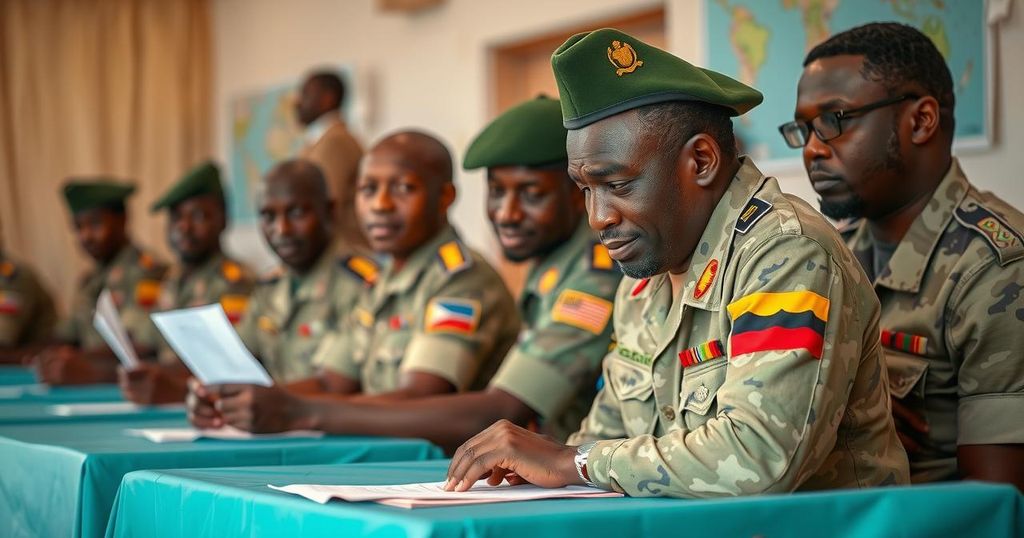Chad Conducts Elections Amid Opposition Boycott and Alleged Electoral Fraud
Chad held legislative, provincial, and local elections amidst opposition boycotts, citing electoral fraud. The ruling government claims these elections are crucial for transitioning to democracy. Allegations include missing ballots and repression of dissent, alongside ongoing violence in the region. The context reflects ongoing struggles for political accountability and transparency in Chad’s governance.
On Sunday, Chad conducted legislative, provincial, and local elections, signaling a critical phase in what the government frames as a political transition following three years of military governance. However, the opposition has opted to boycott the polls, alleging systemic electoral fraud under the leadership of Marshal Mahamat Idriss Itno, who ascended to power in 2021. Opposition leader Succes Masra indicated that it was better for the populace to refrain from voting, decrying the existing political system as one tainted by dishonesty and electoral manipulation. The Democratic Party of the Chadian People (PDPT) reported that over a thousand ballots had mysteriously vanished, calling for vigilance against fraudulent activities orchestrated by the ruling party.
Voting procedures extended from 6 am to 6 pm (0500 to 1700 GMT) for the estimated eight million registered voters, monitored by a contingent of foreign observers and various political representatives. A significant voting prelude occurred the previous day, when service members and nomadic people participated in early voting. The context of these elections is marked by ongoing violence from Boko Haram in the Lake Chad region, the conclusion of a military agreement with France, and accusations of Chadian interference in the Sudan conflict. The elections are promoted by the Itno administration as a pivotal step towards restoring democratic governance.
Marshal Mahamat Idriss Itno took control following the death of his father, longtime ruler Idriss Deby Itno, in 2021, and subsequently secured a five-year term in a May election that faced allegations of fraud. The last legislative elections in Chad occurred in 2011; subsequent attempts to hold elections were thwarted by various challenges, including financial constraints and the COVID-19 pandemic. A transition parliament was established in 2021 through a presidential decree. Increasingly, the opposition contends that the government has adopted more authoritarian and oppressive tactics, reminiscent of the violent suppression of opposition protests encountered in October 2022. Despite the ruling party’s efforts to galvanize voter interest, the media environment remains constrained, with the private press against election coverage due to government funding refusals.
Chad, a nation positioned in the Sahel region of Africa, has a history marked by political instability and authoritarian rule. Following the death of long-time President Idriss Deby Itno in April 2021, his son, Marshal Mahamat Idriss Itno, assumed leadership, promising a transition to democracy. However, the political landscape has been characterized by mobilization of opposition groups against allegations of electoral misconduct and the increasing concentration of power within the ruling government. The country’s recent electoral processes have been marred by allegations of fraud, widespread violence, and repression, reflecting the complex dynamics of governance in Chad as it seeks to emerge from military rule.
Chad’s elections represent a significant yet contested moment in its political landscape, with opposition parties claiming the process is tainted by corruption and coercion. As the ruling government attempts to frame this electoral phase as a step towards democracy, the call for vigilance against electoral malpractices resonates with a public wary of potential manipulation. The ongoing challenges to free press and democratic practices highlight the tension as Chad navigates its path forward post-military rule.
Original Source: www.barrons.com




Post Comment